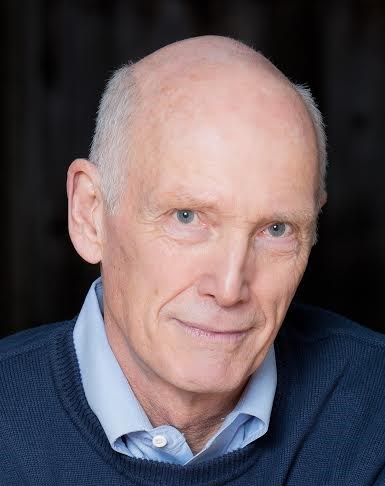Our Member of Parliament in North Vancouver, Liberal Jonathan Wilkinson, won the 2015 election by 19,157 votes, defeating the Conservative incumbent, Andrew Saxton, who had won a second term in the riding in 2011 by 11,331 votes. It was one of the most dramatic shifts in voter preference in the country.
I think, in large part, it had to do with values. In the months leading up to the election, and throughout the campaign itself, Wilkinson reiterated over and over again that he was running because he “wanted his Canada back.” That Canada was a place where the following values were honoured and pursued:
· Respecting each other
· Taking the high road in dealing with each other
· Becoming engaged in our communities
· Offering and seeking authenticity
· Showing compassion and caring
I think the team that Wilkinson gathered around him for the 2015 campaign tapped into a reservoir of Canadian sensibility and thought that runs deep and broad in this land. Here are some of the ways it has been expressed in slogans and studies:
· Peace, order, and good government (British North America Act, 1867)
· Freedom, equality, loyalty to country, and civility (CRRF)
· Flexible, tolerant, spiritual (Michael Snow)
· Civility, diversity, curiosity (Ara Norensayan)
As I was researching this article, and remembering my own studies in and teaching of Canadian history, I drafted my own list of core Canadian values and framed five spectrums to get a better handle on how to consider them:
Dialogue – Dismissal
Civility – Contempt
Love – Fear
Hope – Despair
Generosity – Greed
I think the Canada that Wilkinson wanted back and that his constituents confirmed trends strongly towards the first list of values in this frame. What we worry most about, especially in observing American politics these days, is the growth of what I would call the ‘anti-values’ on the other side of the frame.
It is far too easy to give in to the instinctive and protective reactions to events in our world that take the form of dismissal, contempt, fear, despair, and greed.
It takes a strong discipline of soul to consider the best ways of cultivating the positive responses of dialogue, civility, love, hope, and generosity. In many ways, it’s as simple as ABC. The right Attitudes lead to appropriate Behaviours that generate desired Consequences. But cultivating consistency in the ABCs of Canadian values takes intentional practice.
But practice in what? What can any of us do to serve these values in a world that seems so engulfed in dismissal, contempt, fear, despair, and greed?
What about conversations? What would happen if each person reading this article started to pay particular attention to the values that their conversations are generating? Could we change the world for the better, one conversation after another?
Bear with my flight of fancy and consider this. Every time you open your mouth to talk, your voice creates a vibe and that vibe generates a value. Every time. You don’t have any choice over this. It’s basic physics and happens in every conversation. You do have choice over the intent you have for that conversation, the sound and substance of what you say, and the respect you hold for the others involved in the conversation. That’s where your power lies. You can change the way you show up in the world, one conversation after another. You will need to be clear in your purpose, practiced in your actions, flexible in your interactions. But it is possible.
How else do we bring about positive change in the world? As I read it, the consensus of the research on deep change suggests that you change systems by showing up differently in them. You don’t change dismissal through further dismissal. You work for dialogue. And, yes, it is hard work. You don’t change contempt through further contempt. You work for civility. And, yes, it is hard work. Well, you get the idea. The same applies to love, hope, and generosity.
The value of values is that they can change the world for the better. To participate in that kind of change, to contribute to that kind of change, you need a strong discipline of soul. But the tools used in that discipline are readily available. They are your conversations. You co-create your world, quite literally, one conversation after another. And by the age of 13, you have put in the required 10,000 hours of practice to master the basics of conversation. The question now is what you are going to do with those skills?
It is far too easy to get stuck in outrage when our values are violated. It’s far too easy to get imprisoned by dismissal, contempt, fear, despair, and greed. But those things will destroy our world. They do not serve what we are here to contribute. The life energy that nurtures us, however you may see it and act within it, invites us to grow into something more positive and constructive. It calls us to dialogue, civility, love, hope, and generosity.
And there’s only one way those values take root and spread – one conversation after another.
 Brian Fraser is lead provocateur of Jazzthink and minister with Brentwood Presbyterian Church in Burnaby, BC. He works primarily with not-for-profit staffs and boards convening COOL conversations for SMARTer leadership. You can find out more at www.jazzthink.com and www.brentwoodpc.ca
Brian Fraser is lead provocateur of Jazzthink and minister with Brentwood Presbyterian Church in Burnaby, BC. He works primarily with not-for-profit staffs and boards convening COOL conversations for SMARTer leadership. You can find out more at www.jazzthink.com and www.brentwoodpc.ca
You can read more articles on our interfaith website, Spiritually Speaking, HERE


